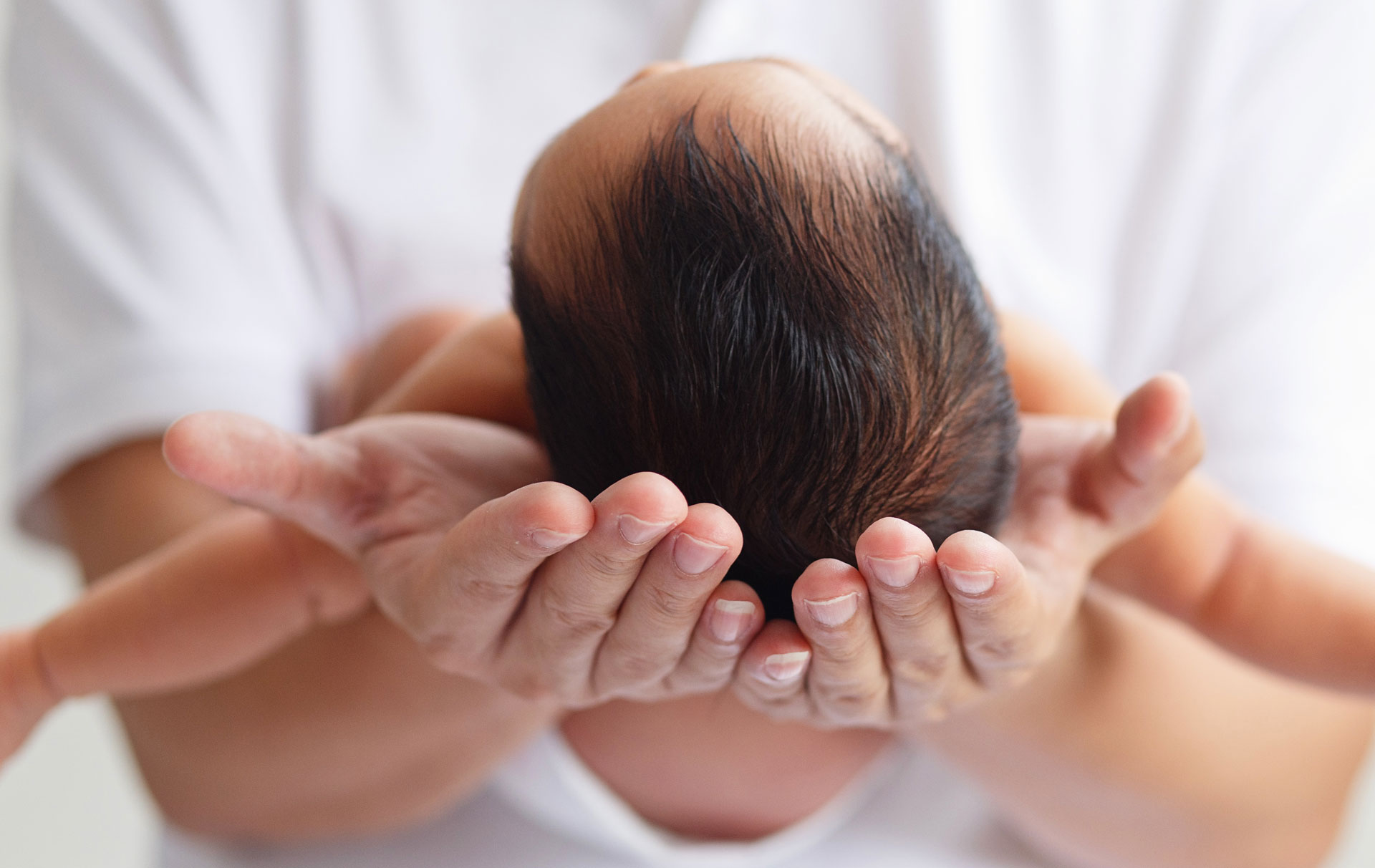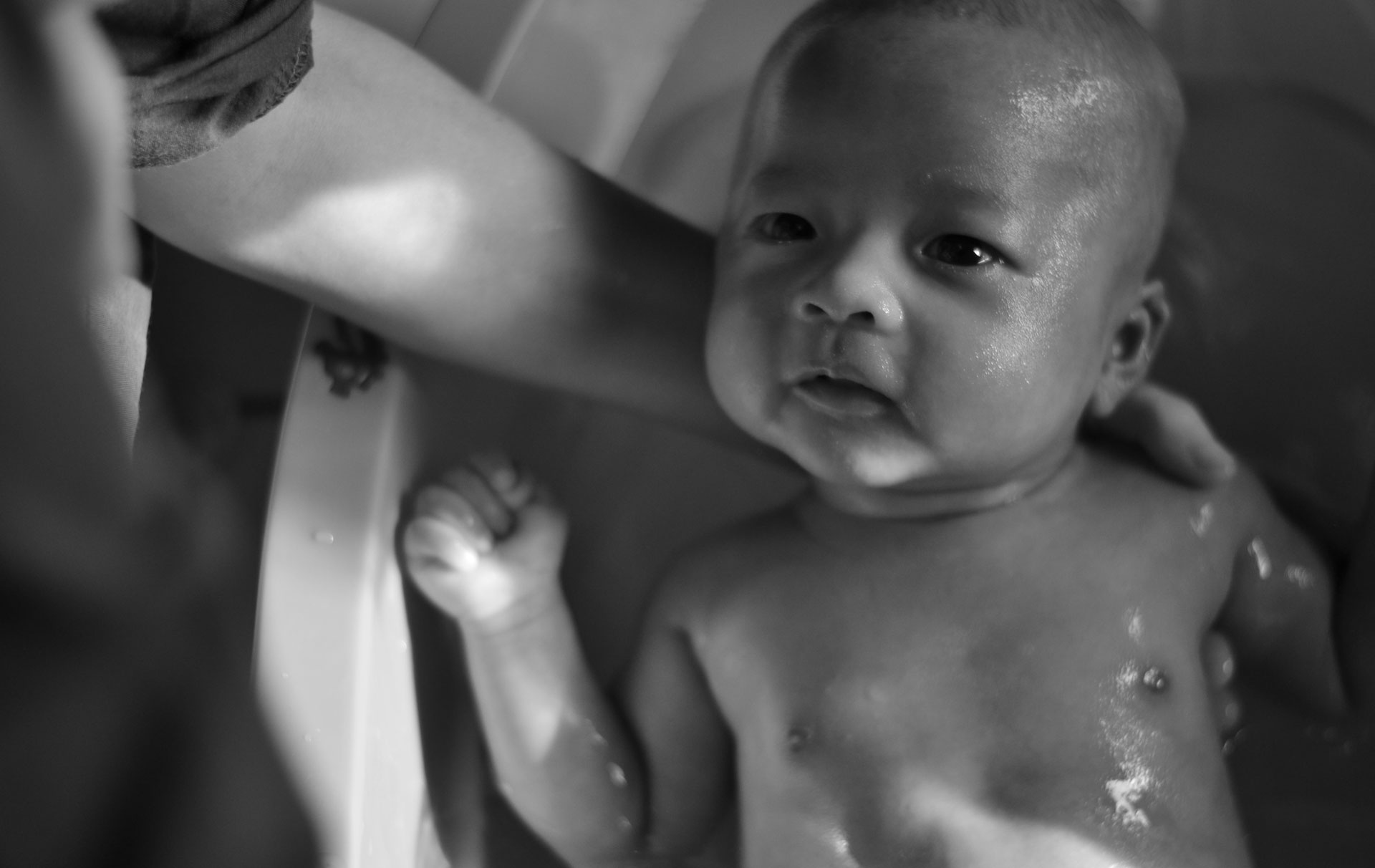Delayed bathing: What are the benefits and should you do it with your newborn?
Why delayed bathing could be beneficial for your newborn baby.

Delayed bathing could be beneficial to your child in more ways than one - but should you do it?
Newborn babies are usually washed in hospital soon after birth, but there's a few reasons why you may want to wait before giving your little one a bath.
Bathing babies shortly after they are born began when births were moved from homes to hospitals. The assumption was that the vernix — the waxy, white substance coating newborns’ skin — needed to be removed, so babies were given sponge baths one to two hours after birth, creating an extended period of time where mother and newborn were separated.
Nowadays however, many hospitals recommend waiting six to 12 hours after birth before giving your newborn a wash. In fact, the World Health Organization has even advised that newborn baths should be delayed to after 24 hours after delivery.
Benefits of delayed bathing
Speaking to GoodtoKnow, Dr Carol Sullivan of the Royal College of Paediatrics and Child Health explained that there are many benefits to waiting and giving your child their first birth several hours after birth.

Delayed bathing also helps support breastfeeding, so if a new mother is hoping to feed her baby that way, it helps to get some bonding time in before allowing a separation.
Parenting advice, hot topics, best buys and family finance tips delivered straight to your inbox.
'Delayed bathing improves breastfeeding rates because it improves the initial skin-to-skin periods and is associated with increased mother’s satisfaction,' Dr Sullivan says.
A new study conducted by the Cleveland Clinic in the Journal for Obstetrics, Gynecologic, and Neonatal Nursing found that delaying a healthy newborn's first bath by 12 or more hours increased the rate of breastfeeding exclusively during their hospital stay.
Maintaining the vernix
Delayed bathing could be good for your baby because it maintains the vernix for as long as possible.
Dr Sullivan explains: ‘Delayed bathing ensures that the vernix is kept in place. This is a mechanical barrier and may protect the baby from infection and is a natural emollient, which is absorbed into the skin slowly over 24 hours. It is beneficial for this to be left in place.'
Although the appearance can be a bit off-putting, the vernix is rather important as it also serves as a germ barrier against bacteria and helps protect newborns against disease too.
Another great pro to the vernix is that it acts as a natural skin moisturiser for your little one. Newborn skin is notoriously adverse to air outside of the womb, so anything that offers additional moisture is sure to be a good thing.
Decreasing the newborn's stress levels
Skin-to-skin contact between mothers and their babies - also known as Kangaroo care - immediately after they have left the womb is important to establish a bond, and it has actually been linked by several studies to lower stress levels in babies.

Plus, it's not just babies - mums also greatly benefit from skin-to-skin contact too.
Research done by the American Academy of Pediatrics National Conference and Exhibition showed that mums' stress levels were reduced after holding their baby.
Although they didn't discover exactly why, lead author of the study Natalia Isaza told Fit Pregnancy: 'From my experience as a mother and a neonatologist, my guess is that skin-to-skin contact reduces mothers' stress levels because it gives them an opportunity to play an active role in the care of their babies.
'We know skin-to-skin contact has physiological benefits in the newborns such as stabilisation of heart rate and respiratory patterns, so holding their babies skin-to-skin allows mothers to aid in the healing process.'
Preventing hypothermia
The vernix, which is made up mostly of water as well as lipids and protein, also protects a newborn baby from heat loss and risk of hypothermia — a potentially dangerous drop in body temperature.

'It prevents hypothermia, that can occur with a bath as babies find it difficult to maintain their temperature in the first few days and getting wet will make this more likely even with a warm bath,' Dr Sullivan says.
'Hypothermia can lead to low blood sugars (hypoglycaemia) and also breathing problems. These could lead to admission to the special care baby unit separating the mother from the baby. It has also been shown to reduce hypoglycaemia even in the absence of hypothermia.'
Delayed bathing: So how long should you wait until you bathe your newborn?
While World Health Organization advise waiting at least 24 hours, Dr Carol recommends that newborn babies are left anywhere between 48 and 72 hours before having their first bath. With this many benefits it's not hard to see why more and more mothers are choosing to do so.
Words by Kirsty McCormack.
Trusted, informative, and empathetic – GoodToKnow is the ultimate online destination for parents. At GoodtoKnow, our mission is 'simple': we're trying to make sense of parenthood. On the site, you'll find everything you need for a happy, healthy family life. Our huge archive of content includes more than 18,000 articles and 1,500 how-to videos. These include expert-backed advice features on parenting, dealing with relationship changes after having a baby, self-care for mums and managing your family finances. We also feature tried-and-tested product reviews and buying recommendations for every stage of family life - from prams and Moses baskets to birthday gifts and top toys.